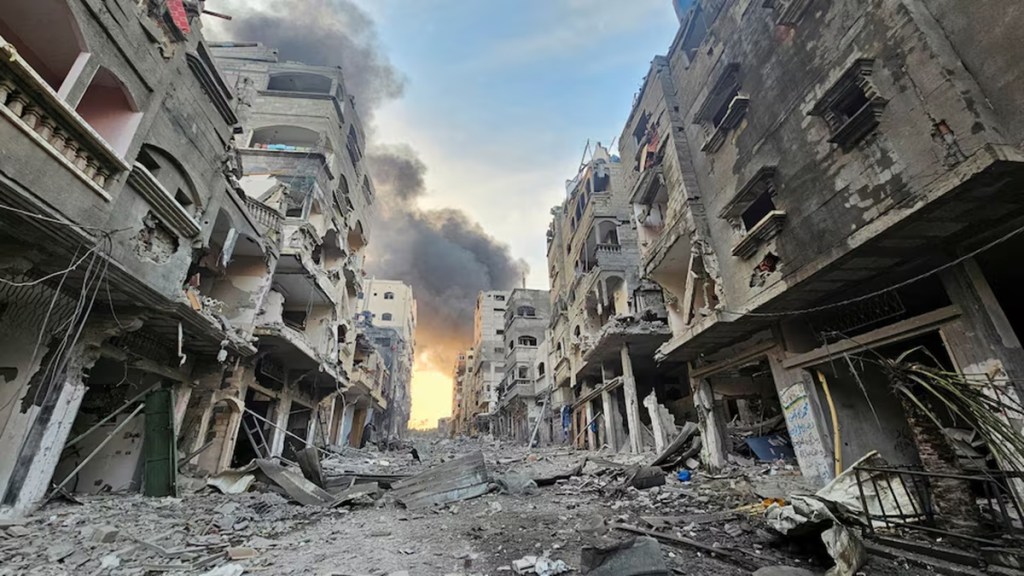Israeli Defense Minister Israel Katz announced on Wednesday a significant expansion of the country’s military operation in Gaza, focusing on seizing “large areas” of land to be integrated into Israel’s security zones. The operation will also involve the evacuation of Gaza’s population from combat zones, although specific details were not provided, reports CNN.
While signs of the operation’s expansion have yet to materialize on the ground, heavy airstrikes overnight have already resulted in at least 17 deaths, according to local health authorities. Katz’s statement described the operation as an effort to “crush and clear the area of terrorists and terror infrastructure,” alongside the seizure of land to strengthen Israel’s security.
Late on Tuesday, an Israeli military spokesperson for Arabic media ordered residents in the southern Gaza city of Rafah to leave their homes and move north, signaling the potential onset of larger ground operations.
As reported by CNN, sources familiar with the matter said that Israel had been planning a major ground offensive in Gaza that could involve sending tens of thousands of troops to clear and occupy significant parts of the enclave. Katz’s statement did not clarify whether additional Israeli troops would be deployed in the expanded operation, but it came as Israel continued its aerial bombardment of Gaza.
At least 17 people were killed in the strikes overnight, with many of the victims—including women and children—having been sheltering in a house after being displaced from Rafah, as confirmed by Nasser Hospital. Two additional casualties were reported in a separate attack in central Gaza, according to Al Awda Hospital.
Protests and calls for Hamas removal
The military operation follows weeks of protests by Palestinians in Gaza, with many rallying against both Hamas and Israel’s ongoing military campaign. Buoyed by these protests, Katz urged Gazans to take to the streets, emphasizing that Hamas “is endangering” their lives. He called for the removal of Hamas from power and the release of all Israeli hostages, stating that “this is the only way to stop the war.”
Since resuming its offensive two weeks ago—breaking a two-month ceasefire—Israel has warned that its forces would maintain a permanent presence in parts of Gaza until the remaining 24 Israeli hostages, who are believed to still be alive, are freed.
Growing humanitarian crisis
The humanitarian situation in Gaza has worsened, with the United Nations (UN) warning of severe food shortages. All bakeries in Gaza have shut down due to a lack of fuel and flour, according to local authorities and the UN. Abdel Nasser Al-Ajrami, head of the local Bakery Owners’ Association, stated that the closures are exacerbating the region’s growing famine.
Abeer Etefa, communications officer for the UN’s World Food Programme (WFP), confirmed that all 25 of the WFP’s bakeries have ceased operations. “Hot meals are continuing, but supplies will last two weeks. WFP will distribute its last food parcels in the next two days,” she said.
Hostage families express outrage
The families of Israeli hostages, meanwhile, have expressed their horror at the announcement of the military operation’s expansion. The forum representing the families stated they were “horrified to wake up” to the news. They criticized the Israeli government for prioritizing military action over securing the hostages’ release. “Instead of securing the release of the hostages through an agreement and ending the war, the Israeli government is sending more soldiers into Gaza to fight in the same places they have fought time and again,” the forum said in a statement.
The families have called on Prime Minister Benjamin Netanyahu, Defense Minister Katz, and Chief of Staff Lt. Gen. Eyal Zamir to publicly explain how this military escalation serves the goal of bringing the hostages home.

